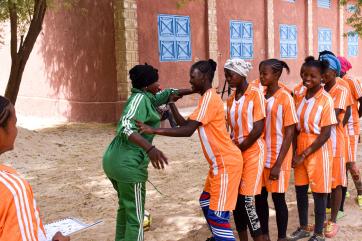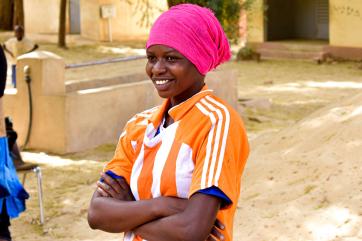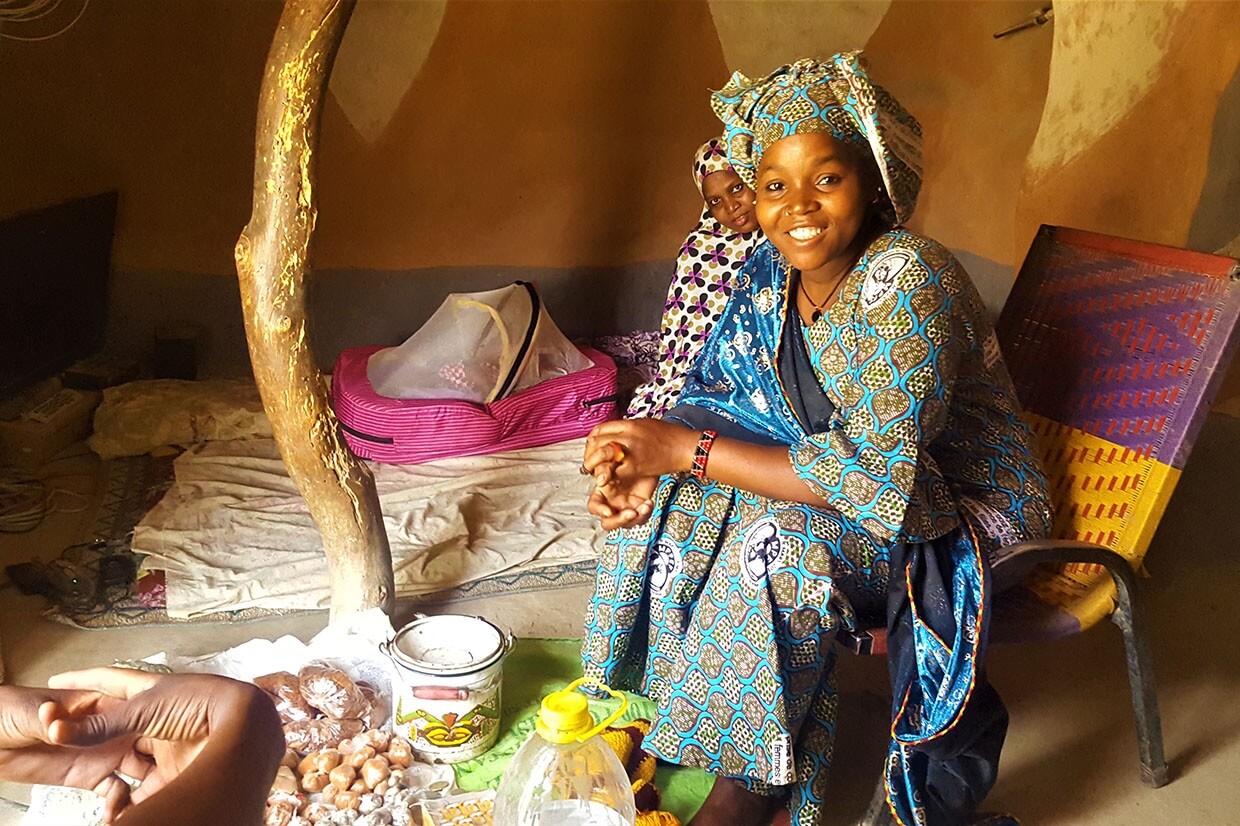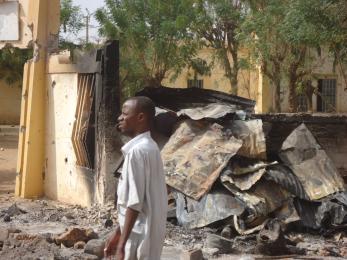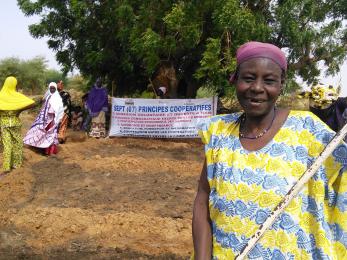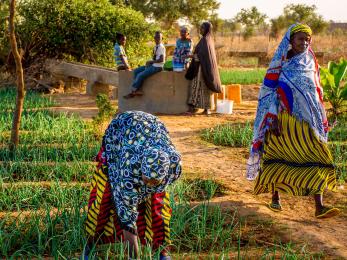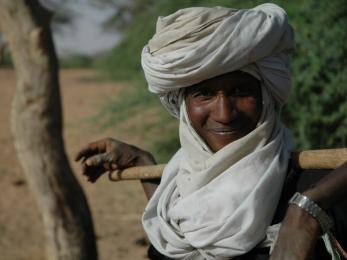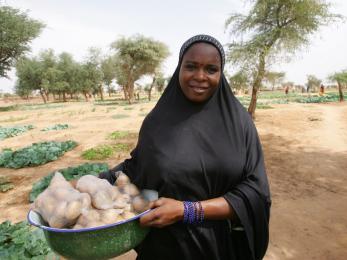Breadcrumb
Mali
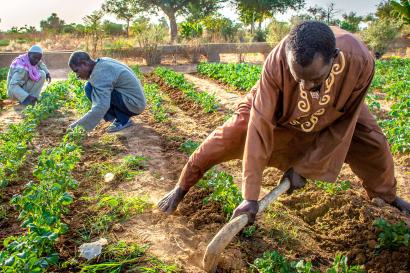
Since 2012, Mercy Corps has worked hand-in-hand with communities to restore livelihoods and build resilience while providing urgent and life-saving assistance in emergencies. Last year, we reached over 117,000 people across the country.
The context
Located in West Africa, Mali has a population of 19.6 million people across 479,200 square miles, making it the eighth-largest country on the continent.
Mali has a rich and complex political history going back centuries, including the Malian and Songhai empires, colonial rule under France from 1892 to 1960, and a post-independence state that was long regarded as a model of stability in West Africa.
Since 2012, however, Mali has been embroiled in a complex security and political crisis. Despite the signing of a peace agreement in 2015 between pro-government forces and armed movements, the civilian population continues to suffer from the consequences of violence. There are nearly 350,000 people displaced inside of Mali and over 47,000 who have fled to neighbouring countries.
The number of people in need of humanitarian assistance has doubled in a year, reaching 7.1 million people, largely due to widespread poverty made worse by conflict, climate change, and the COVID‑19 pandemic.
As the conflict continues to affect northern and central Mali, all aspects of day-to-day life are increasingly affected. 1,261 schools remain closed due to insecurity, impacting more than 338,000 children. And the COVID‑19 pandemic is straining already overburdened healthcare services, especially in conflict-affected areas where 23% of health facilities are not functioning.
-
7.1m
-
1.3m
-
350,000
Food insecurity is on the rise. With 80% of Mali’s population reliant on subsistence agriculture, a combination of displacement, climate change, and COVID-19-related disruptions have devastated rural livelihoods and much of the food supply. Today, 1.3 million people do not have enough to eat. Climate change, coupled with population growth, is leading to more competition over fewer resources and causing conflict between farmer and pastoralist communities.
The food insecurity and conflict situation is compounded by the lack of economic opportunities and diversification of income in Mali. The unemployment rate remains very high and job opportunities are scarce. The ever-increasing youth population has little interest in agriculture and has few skills to earn a living off the farm. Increasing livelihood options for youth is vital to ensure that they do not resort to negative coping mechanisms such as joining armed groups, criminality, and migrating.
Our impact
Since 2012, Mercy Corps' work in Mali has focused on reducing food insecurity by building resilience, restoring peace and stability, and connecting communities to the resources they need to recover and rebuild. Throughout, we place an emphasis on the needs of women and girls. Our areas of focus include:
- Improving food security, quality nutrition, and resilience
- Strengthening market systems and youth employment
- Mitigating and addressing the root causes of conflict
As Mali continues to face the COVID-19 pandemic, we are adapting our programmes so that we can continue to work alongside communities safely while also connecting families with the resources and knowledge they need to prevent the spread of the virus.
Improving food security, quality nutrition, and resilience
Mercy Corps delivers targeted humanitarian assistance to meet the basic needs of vulnerable communities. Specifically, we provide food, water, sanitation facilities, and hygiene awareness to communities who have been displaced by violence and those who host them.
We also support farmers to increase their yields, income, and sustainability so that communities have lasting access to food. We provide agricultural inputs like fodder, seeds, tools, and technical training to improve and grow their operations.
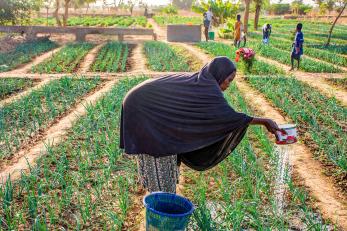
Strengthening market systems and youth employment
Mercy Corps partners with other humanitarian organisations, the public and private sectors, and the government to increase employment opportunities for young people and women. We take a market-based approach focused on developing both the skills of young people and key sectors with high potential for job creation.
In conflict-affected communities in the central and northern regions of the country, we provide entrepreneurs with training in business plan management, marketing, project management, accounting, and economics. We also design and promote tailored financial services like loans, credit, savings accounts, and insurance to help people start and grow a business, save for the future, manage risks, and more easily adapt to change.
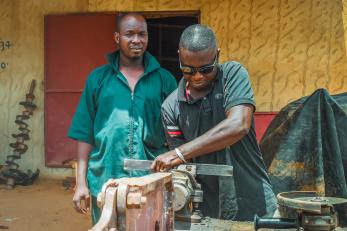
Mitigating and addressing the root causes of conflict
Mercy Corps works to address the root causes of conflict—food insecurity, economic stagnation, gender inequality—and strengthen mechanisms for identifying and responding to conflicts when they do arise.
We work closely with a diverse network of people, including male and female elected, religious, and traditional leaders as well as local officials and civil society representatives to form committees that act as an early warning and response system. They all work together to identify and resolve major disputes before they become violent, using negotiation and conflict resolution techniques learned through Mercy Corps-led training sessions. These committees also provide warnings to authority before violence erupts within communities.
In a country with one of the highest unemployment rates in Africa, Mercy Corps creates positive opportunities for youth to engage in building safer and more resilient communities. One way we do this is through sports clubs where youth get exercise while also learning life skills such as teamwork, leadership, inclusion, and responsibility.
